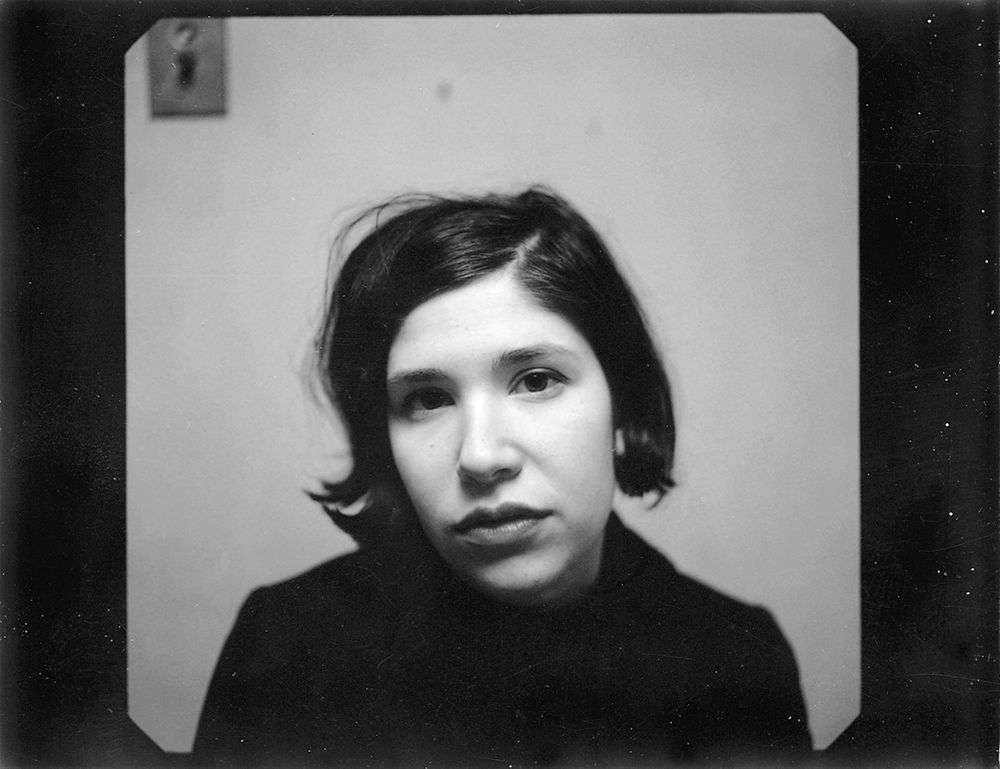Carrie Brownstein, guitarist in American Riot Grrrl bandSleater-Kinney, writer and co-star of the award-winning TV series Portlandia, and in this incarnate, a compelling story teller, has done the improbable. That is, she has written a memoir so compelling in its strong and steady voice, that the content is almost incidental. That is, if you are not familiar with the work of Sleater-Kinney (I wasn’t) or had not watched the programme that won her such accolades (I didn’t) you would still find this a truthful, almost reportage account of life on the road, and what led her to it.
 Sleater-Kinney doing a group vocal take in 2000 during the recording of All Hands on the Bad One.
Sleater-Kinney doing a group vocal take in 2000 during the recording of All Hands on the Bad One.
Photograph @Carrie Brownstein
This could have easily been filed, if badly written, under the sub-genre of the fucked-up chick who did too much, too soon. Her formative years would have been enough material for a self pitying, descent into drugs and rehab memoir, but instead, she rises above her anorexic mum’s flight from the family house, her father coming out to her as gay, while trying to define her own sexuality, and up sticks and forms a band.
 Around age three, with a Kool-Aid hat and matching jacket. Luther Burbank Park, Washington.
Around age three, with a Kool-Aid hat and matching jacket. Luther Burbank Park, Washington.
Photograph @Carrie Brownstein
There are no tales of deep on the road depravity here, just the mundane grind of what she calls “tour” – this includes being part of a press darling band during the Riot Grrrl years, making many critically acclaimed and decently selling records, but still touring around in a basic van, humping their own gear, and sleeping on peoples’ floors.
 A concert for Food Not Bombs at Dolores Park in San Francisco. Opening for Fugazi.
A concert for Food Not Bombs at Dolores Park in San Francisco. Opening for Fugazi.
Photograph @Carrie Brownstein
She has the writer’s instinct and memory for detail – of her band-mate’s first studio flat , she notes she has labelled household products like baking powder as “racist” a conceit she explains with, “I suppose if you’re in a period of continual confrontation, why stop at yourself?” The sentence jars with anyone who has come of age when everything could be contextualised as political, sexual, and a bone of contention. It makes day-to-day life a pain in the arse.
 A picture of every single person who watched our set at a festival in Dour, Belgium.
A picture of every single person who watched our set at a festival in Dour, Belgium.
Photograph @Carrie Brownstein
Brownstein comes across as that rare thing in the music industry – the voice of reason. Her matter-of-fact tone, her almost form-follows-function details of life on the road (when she is bored, we are bored), is always accurate, if at times, a bit tedious. Her basic message seems to be that being in a really cool band is not all that.
 Driving back to Olympia from the SeaTac airport with a copy of the first magazine in which
Driving back to Olympia from the SeaTac airport with a copy of the first magazine in which
Sleater-Kinney was featured. Photograph @Carrie Brownstein
We are left with the feeling that the story is not over for this over achiever. The narrative peters out during the final chapters, her animal rescue years. It feels like padding, even to animal lovers, such as myself.
Her writing is at its strongest when she talks about the disparity of being on stage (extraordinary) and off stage (very ordinary) and at its weakest when she tries to give it intellectual context – at the same time, being a girl in a girl band while dismissing the notion that this is important in any way, in modern times.
If you are thinking of forming a band, read this first. You might change your mind and cut to the chase to live with too many dogs and cats.
by Michele Kirsch
Review: Hunger Makes Me A Modern Girl: a memoir by Carrie Brownstein (Virago: £16.99)
All images courtesy and @Carrie Brownstein

